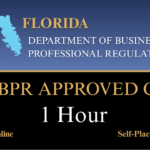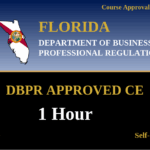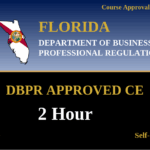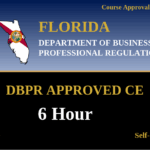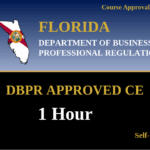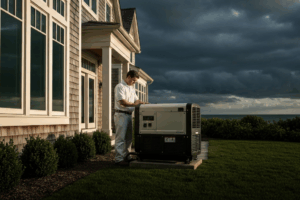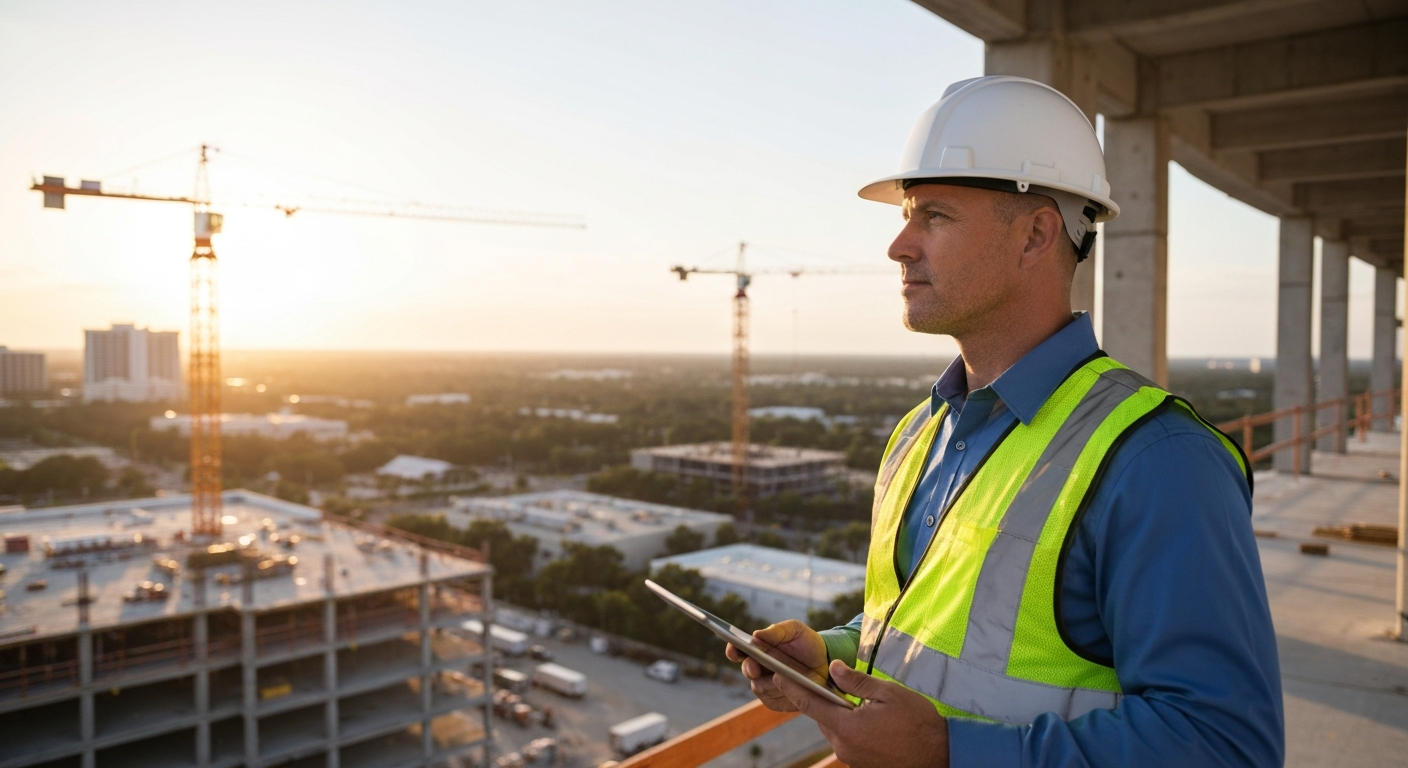
Navigating the Florida DBPR for Electrical Licensees
This guide will walk you through the key aspects of the DBPR’s requirements, from license types and renewal mandates to code updates and career trends, helping you manage your professional obligations with confidence.
Your Regulatory Hub: The Electrical Contractors’ Licensing Board (ECLB)
The Florida Department of Business and Professional Regulation (DBPR) is the state’s primary agency for professional licensure. Within the DBPR, the Electrical Contractors’ Licensing Board (ECLB) is the specific entity responsible for licensing and regulating electricians. Governed by the rules outlined in Chapter 489, Part II of the Florida Statutes, the ECLB sets the standards for practice, manages disciplinary actions, and oversees all aspects of licensure.
For licensees, the most important tool in their compliance arsenal is the state’s official online portal, MyFloridaLicense.com. This website is the central hub for applying for a license, managing your information, and, most importantly, completing your biennial renewal.
The Core Distinction: Certified vs. Registered Electrical Contractor
In Florida, not all contractor licenses are created equal. The DBPR issues two primary types of licenses for electrical contractors, and understanding the difference is crucial for your career path.
- Certified Electrical Contractor (EC): A certified electrical contractor holds a statewide license. After passing a comprehensive state examination, these professionals are authorized to perform electrical work anywhere in Florida, from a residential project in Jacksonville to a commercial build in Miami. This is the most versatile and common license for contractors planning to operate across multiple counties.
- Registered Electrical Contractor (ER): A registered electrical contractor holds a license limited to the specific counties or municipalities where they have passed a local competency examination. Their authority to work is restricted to those specific jurisdictions.
It’s also important to note that while many professionals work as a journeyman electrician, this is not a statewide license managed by the DBPR. Journeyman licenses are issued at the county or municipal level, so their requirements and privileges can vary by location. The DBPR’s primary focus for continuing education and renewal is on state-certified and registered contractors.
Staying Compliant: License Renewal and Continuing Education Requirements
For all certified and registered electrical contractors in Florida, the license renewal deadline is August 31st of every even-numbered year. A critical part of this process is completing mandatory continuing education requirements. The ECLB mandates these hours to ensure every contractor remains up-to-date on safety, laws, and technical standards.
According to the Florida Administrative Code, the requirements for the two-year renewal cycle are as follows:
- Certified (EC) and Registered (ER) Electrical Contractors: A total of 11 hours are required, as detailed in Florida Administrative Code Rule 61G6-9.001.
- 7 hours of Technical Subjects (which must include at least 1 hour on the Florida Building Code Advanced Module)
- 1 hour of Florida Laws and Rules
- 1 hour of Workplace Safety
- 1 hour of Workers’ Compensation
- 1 hour of Business Practices
- Note: Contractors who perform alarm work must complete 2 hours on false alarm prevention, which counts toward the technical hours requirement.
- Certified and Registered Specialty Contractors: The 7-hour requirement varies based on the specialty, as defined in Florida Administrative Code 61G6-9.001(3).
- Alarm System Contractors: A total of 7 hours are required, including 2 hours of false alarm prevention, 1 hour of an advanced module on the Florida Building Code, 1 hour of Florida Laws and Rules, 1 hour of Workplace Safety, 1 hour of Workers’ Compensation, and 1 hour of Business Practices.
- Other Specialty Electrical Contractors: A total of 7 hours are required, including 3 hours of technical subjects, 1 hour of an advanced module on the Florida Building Code, 1 hour of Workplace Safety, 1 hour of Workers’ Compensation, and 1 hour of Business Practices.
These renewal requirements are more than just a checklist; they are a vital part of professional development. Staying current with topics like new arc-flash labeling requirements is essential for job site safety. Luckily, many providers offer board-approved online electrical courses that make fulfilling these obligations convenient. After completing your hours, the final step is to process your electrical license renewal through the MyFloridaLicense.com portal. Need to complete your CE? ExpertCE offers a full suite of courses approved by the ECLB to meet your renewal needs. Browse our courses today.
Keeping Up with the Code: Florida Building Code and NEC Updates
As of December 31, 2023, all electrical work in Florida must comply with the 8th Edition (2023) of the Florida Building Code for electricians, which adopts the 2020 National Electrical Code (NEC) with Florida-specific amendments, as directed by the Florida Building Commission. Adherence to the current code is not optional—it’s the law. Understanding the latest edition of the NEC is critical for passing inspections, ensuring safety, and implementing modern technologies correctly. For instance, recent NEC updates have clarified rules around the use of reconditioned equipment, a topic every contractor should understand. You can learn more about how to use reconditioned electrical equipment in our detailed guide.
Expanding Your Business: Endorsement and Qualifying Agents
For electricians looking to move to the Sunshine State or expand their business, understanding a few key concepts is essential.
- Florida Electrical License Reciprocity: Florida does not have traditional, automatic reciprocity with other states. Instead, it offers a path to licensure through license endorsement. Out-of-state contractors who have been licensed for at least 10 years or can prove their exam was substantially similar to Florida’s may apply for endorsement, which is evaluated on a case-by-case basis by the ECLB.
- Qualifying Agent: If you plan to operate your electrical business as a corporation, LLC, or partnership, you must designate a qualifying agent. This is the certified or registered contractor who is legally responsible for supervising all of the company’s electrical work. A single contractor can qualify a business, ensuring all operations fall under a valid license.
The High Cost of Non-Compliance: Penalties for Unlicensed Work
The DBPR and ECLB take unlicensed contracting very seriously. The state imposes significant unlicensed electrical work penalties to protect consumers and the integrity of the trade. Beyond hefty fines and potential legal action, Section 489.128 of the Florida Statutes renders any contract entered into by an unlicensed contractor unenforceable. This means if a client refuses to pay, an unlicensed contractor has no legal recourse to collect. These strict measures underscore the importance of maintaining a valid license and ensuring workplace safety for electricians and the public.
Your Career in the Sunshine State: Trends and Opportunities
Beyond regulation, Florida’s electrical market is ripe with opportunity. The state’s economic growth fuels several key trends:
- Residential Demand: Sustained population growth and a strong housing market continue to fuel new residential construction across the state, keeping skilled residential electricians in high demand.
- Green Technology: The push for renewable energy is creating new specializations in solar panel installation, EV charging stations, and battery storage systems.
- Smart Homes: Advanced building automation and the Internet of Things (IoT) require electricians with skills beyond traditional wiring.
For those entering the trade, structured training through an electrician school or an apprenticeship program using a standardized curriculum like NCCER provides the foundational knowledge needed to eventually earn a Florida DBPR electrical license and build a successful career.
Frequently Asked Questions (FAQs)
What is the main difference between a Certified and a Registered Electrical Contractor in Florida?
A Certified Electrical Contractor (EC) is licensed to work anywhere in the state of Florida, while a Registered Electrical Contractor (ER) is limited to working only in the specific local counties or cities where they hold a certificate of competency.
How many continuing education hours do I need for my Florida electrical license renewal?
Certified and Registered Electrical Contractors (EC/ER) need 11 hours of continuing education every two years. Certified and Registered Alarm and Specialty Contractors need 7 hours every two years. The renewal deadline is August 31st of even-numbered years.
Does Florida offer reciprocity for out-of-state electricians?
No, Florida does not have direct reciprocity. However, it offers a process called “endorsement,” where an out-of-state licensed contractor can apply to have their license recognized if they meet Florida’s experience and examination equivalency standards.
Florida Continuing Education Courses
Explore our board-approved continuing education courses for Florida professionals:
View CE RequirementsFlorida 1 hour course on workers’ compensation
Florida 1 hour course on workplace safety
Florida 2 hours course on false alarm prevention
Florida 6 hours electrical CE course (Technical)
Florida 1 hour business practices course
Disclaimer: The information provided in this educational content has been prepared with care to reflect current regulatory requirements for continuing education. However, licensing rules and regulations can vary by state and are subject to change. While we strive for accuracy, ExpertCE cannot guarantee that all details are complete or up to date at the time of reading. For the most current and authoritative information, always refer directly to your state’s official licensing board or regulatory agency.
NEC®, NFPA 70E®, NFPA 70®, and National Electrical Code® are registered trademarks of the National Fire Protection Association® (NFPA®)

